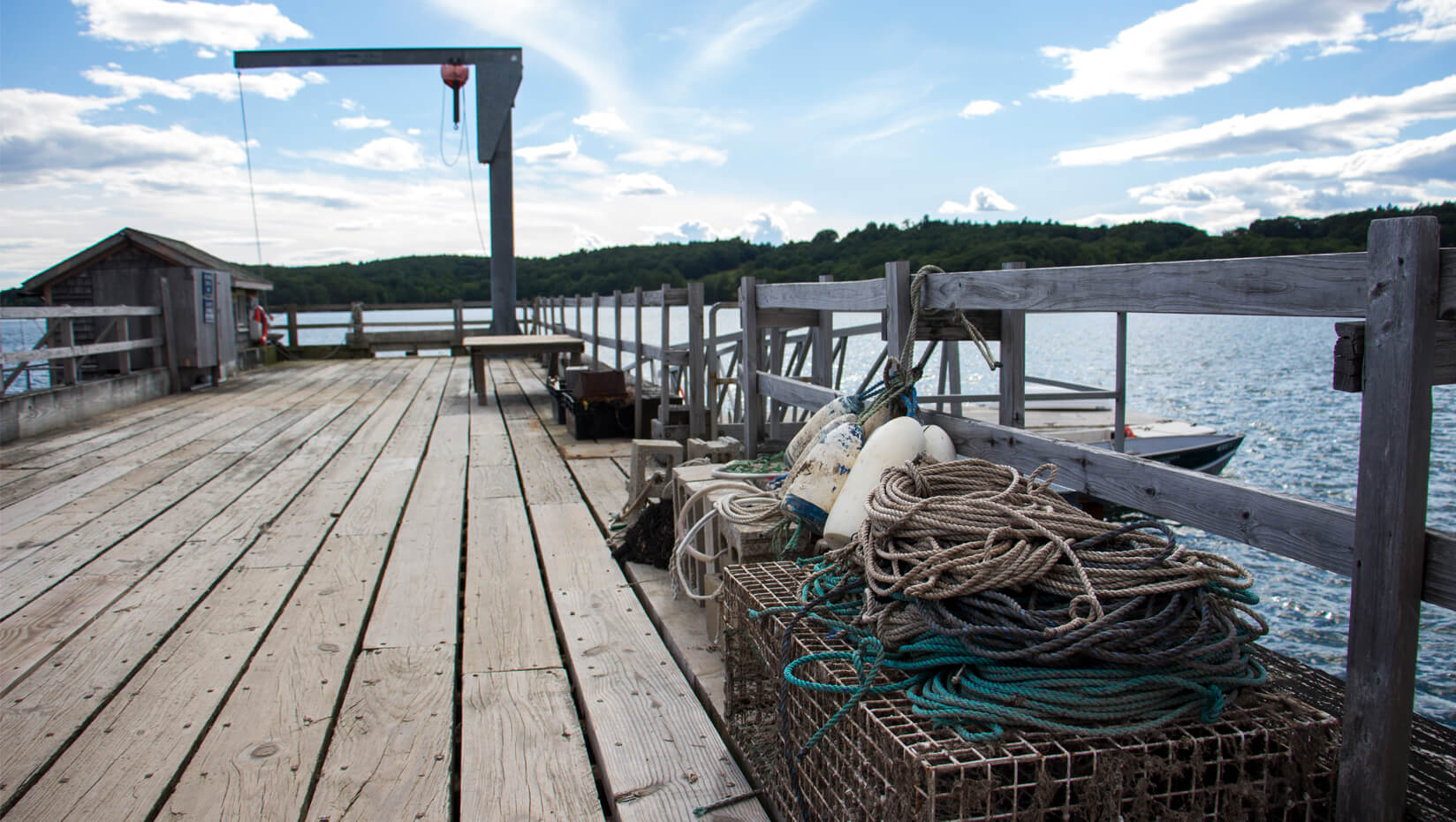
Ph.D. candidate examines effects of licensing on resilience of Maine’s fisheries
A recent study by University of Maine researchers examines the history of the licensing system for commercial fisheries in the state and how it has changed fishermen’s access to marine resources.
The findings suggest the evolution of the regulations threatens the resilience of the social-ecological system in Maine’s fisheries and highlight the paradox of the licensing system. Regulations instituted to solve specific problems appear to be eroding the overall resilience of Maine’s fishing industry, according to the research team.
Josh Stoll, a Ph.D. candidate in the School of Marine Sciences, led the study recently published in the journal a “Global Environmental Change.”
“This research raises important questions about the long-term sustainability of the commercial fishing sector in Maine,” Stoll says. “This should be relevant to people in Maine because the fishing sector is such an important to the state’s socioeconomic and cultural landscape.”
Stoll worked with UMaine faculty Christine Beitl, an assistant professor of anthropology; and James Wilson, a professor of marine sciences and economics, on the study titled, “How access to Maine’s fisheries has changed over a quarter century: The cumulative effects of licensing on resilience.”
Resilience is defined in the study as the capacity of a system to withstand disturbances without fundamentally changing form or function. Disturbances include environmental causes, such as extreme weather events, and socioeconomic causes, such as shifts in market demand.
The study adds to literature on resilience within the context of marine and ocean governance, and a focus on the relationship between adaptive management and sustainability.
Throughout Maine’s fishing licensing history, according to Stoll, state legislators have used a piecemeal approach by solving specific problems in specific fisheries at specific moments in time.
In their analysis, the team described the species-specific management decisions that have contributed to the decline in resilience of Maine’s fishing fleet.
“One unintended consequence is that fishers’ access to marine resources has declined such that fishermen today are more specialized than they have been in the past 25 years — and potentially ever,” Stoll says.
In the article, the researchers describe how the evolution of the licensing system for commercial fisheries in Maine has progressively limited the ability of both fishers and the state to respond to changing environmental circumstances.
From 1990 to 2014, new licenses were created at the rate of about 0.6 per year, according to the researchers.
The continual decline in fishers’ access is not the result of a strategic policy agenda, the researchers argue, but an effect of multiple decades of policy interventions that have sought to improve the productivity of individual fisheries.
The adaptive process of creating and splintering licenses into increasingly smaller units at the legislative level has continually decreased the effect that these changes have on the system overall, the researchers say.
“Many people have argued that having an adaptable governance system in place increases resilience,” Stoll says. “However, we use the licensing system in Maine to show that in certain instances being adaptable erodes resilience when the type of adaptation becomes increasingly narrow in scope.”
Many scholars have called for a shift away from management approaches that require definitive information about the characteristics of fisheries systems to approaches that aim to build social and ecological resilience, the researchers say.
Alternative approaches include strategies that aim to preserve the life histories of marine species; geographic protections that maintain habitat and provide sanctuary to marine species; and community-based institutions that facilitate local responsiveness to threats.
Stoll says there is a tendency to study fisheries on a species-by-species basis, but there is growing recognition that scientists should start taking an ecosystem-based approach to management that accounts for cross-fisheries connections.
“This is widely recognized in the natural sciences, but we also need to do the same in the social sciences because these complex and dynamic connections have important implications for the long-term sustainability of fisheries and the communities that depend on them,” he says.
Stoll says the study represents an attempt to start identifying the existing cross-fisheries connections.
Funding for the research was provided by UMaine’s Senator George J. Mitchell Center for Sustainability Solutions, and the Robert and Patricia Switzer Foundation.
Contact: Elyse Kahl, 207.581.3747
